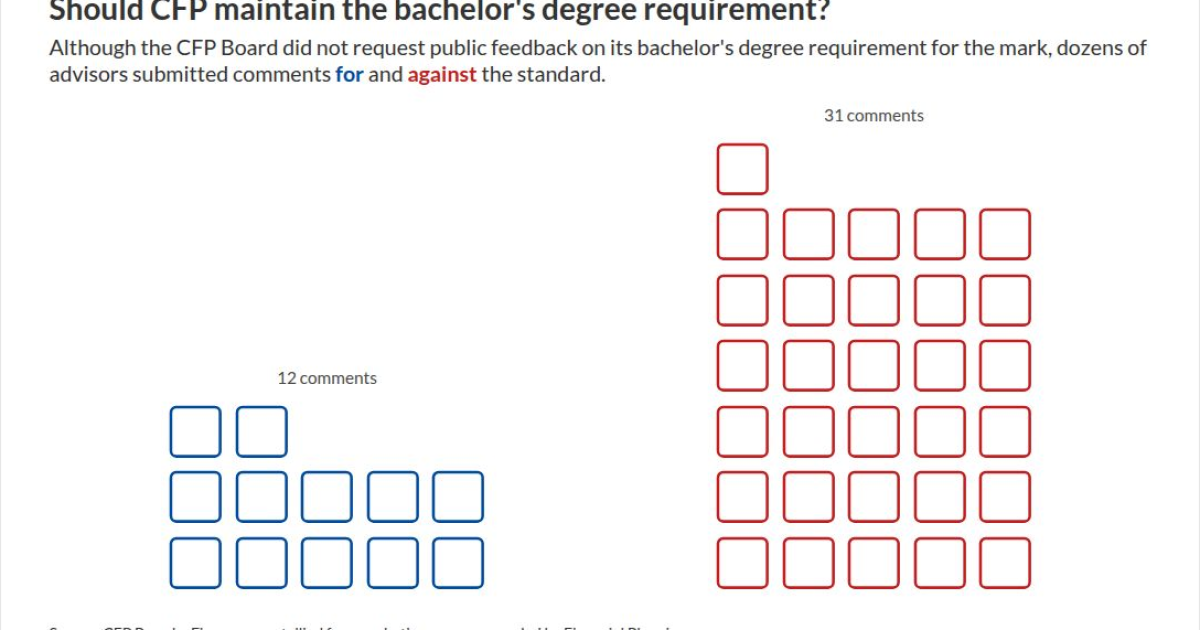In an industry that sees firms seldom shying away from ambitious goals, AllianceBernstein is no exception.
Rick Meyers, head of client and advisory at AB’s Bernstein Private Wealth Management unit, said in a recent interview that he and his colleagues are intent on doubling the number of ultrahigh net worth clients they work with by 2029. By ultrahigh net worth, Meyers generally means investors with $20 million or more. He declined to say how many clients fitting into that category the firm has now but said they account for roughly 70% of its assets under management.
Meyers said much of that comes from working with wealthy families, business owners and corporate executives, as well as a growing number of professional athletes and entertainers. Like many wealth managers, AllianceBernstein is courting well-to-do clients not only for the assets they can bring in but also for the greater variety of services beyond basic financial planning that they are likely to need.
Adding to the firm’s longstanding expertise in tax planning, Alliance Bernstein can now offer what Meyers deemed a “full suite of family office services.” This extends to basically any type of assistance a wealthy family might need to manage its financial affairs — even including help with dissolutions of family partnerships.
Meyers said Alliance Bernstein has built its wealth management business on a 3-to-1 ratio. For every advisor working directly with clients, there are three staff members behind the scenes providing expertise on financial planning, family relationships, technology, taxes, marketing and other topics.
“The result is what I think is industry-leading productivity,” he said. “Last year, on average, our advisors attracted $94 million of new client assets.”
With nearly 25 years at AllianceBernstein, Meyers now finds himself at the head of a wealth management division with roughly $150 billion in assets under management and roughly 250 advisory practices. That business is just one part of a firm with $844 billion in client assets in total and offices in 52 cities around the world, including its headquarters in Nashville, Tennessee.
Meyers recently sat down with Financial Planning to discuss AllianceBernstein’s wealth management goals and how it plans to reach them through advisor recruiting and training.
This article has been lightly edited for clarity and brevity.
Financial Planning: How do you see yourself doubling your number for ultrahigh net worth clients and meeting other goals?
Rick Meyers: We have long had a traditional hiring practice where we take people from other parts of the industry, but not necessarily private wealth, and they go through our best-in-class 13-week training program.
Now we’ve augmented that with — let’s call it net new, inorganic growth. So we’re hiring experienced advisors in the industry and exploring the acquisition of RIAs and advisor teams.
FP: What do you want in advisors?
RM: We’re looking for advisors who exhibit four basic traits or characteristics. One is they try to get better every single day. The industry throws so much at us, that if you are not moving forward, you’re falling behind.
The second thing we look for, we want people to be intellectually curious, want them to be curious about the person they’re sitting across from. We want them to be curious about the people they work for and with. We also want them to be curious about the trade that we practice, but the world around them, because you’re relating to lots of different people in lots of different ways.
Also, this is a team sport. We want people who like to work in teams and thrive in teams. Bernstein is very much about a team culture. So if your greatest desire in life is to be left alone, this may not be a great place, because you’ve got a lot of people who want to help you. That sort of speaks to that 3-to-1 ratio.
And the last piece is accountability. I don’t want to hear: It’s not my job. It’s not my fault.
We want people who sit across from that client and own the advice that they have given. It’s a huge part of being a fiduciary — that accountability that comes with this role.
FP: Are you directing advisors to work exclusively with wealthy clients?
RM: One of the things that I’ve always loved about Bernstein is we don’t tell you what kind of clients that you need to work with. But we do have service platforms for ultrahigh net worth, for traditional high net worth, and for people who might be starting out the beginning of their wealth journey. We allow the advisors to work with any of those clients if they think it makes sense for their business and their practice. And that’s different than, I think, the direction that some firms have gone in, with saying you can work with this person but not that person.
FP: How do you use compensation not only to attract but also retain advisors?
RM: We have a revenue-based model that has attractive compensation on both new and existing assets and that has multiple floor configurations, depending on either the size of the book or the historical productivity. We’ve always believed that we should have a compensation system that meaningfully rewards both tenure and success, and so that’s what it’s really built around.
There are annual abilities to achieve net cash-flow bonuses as well as extraordinary bonuses based on recent productivity that are equity based. Those stock-based awards are delivered through the Alliance Bernstein units, which are master limited partnership units. So they come with an extremely high dividend payout in addition to the equity.
And then at the tail end of their careers, we have among the most competitive five-year transition payouts, where people can essentially have an earnout of the business that they’ve created since they’ve been here.
FP: How are you using technology in new ways? Are you doing anything with AI?
RM: I didn’t think I’d get out of this without talking about AI.
We have proprietary tools that we’ve developed for advisors — right tax, smart transition tools, which are extraordinary. The output is unbelievably detailed and exceptional in terms of helping people think about the migration of their assets from another platform to our own.
Advisors can deliver fairly sophisticated planning advice in the moment as they sit with our clients. We have, say, a set of tools to help explore the considerations around adding alternatives to a portfolio. It looks at all the different characteristics of a portfolio, up to and including the cost of foregone liquidity that comes with that, so clients can think through whether the advice makes sense for them.
Of course, we also have everything from notetaking and [customer relationship management] integrations and a handful of sort of agency tools that we’ve developed to help advisors understand the clients that they’re meeting with.
There’s a digital-marketing engine that’s delivering geo-targeted leads to advisors.
FP: What are you doing to bring more people into the industry as advisors?
RM: We think about this quite a bit because it’s long been our model. There’s a training program that we have for people who are growing up through our associate program called our next program. We have our new-advisor training program for people coming from outside the industry. And then we do ongoing training through our new business-development group, which focuses on folks in their first three years of their practice.
And we do ongoing work with our principals. We have a matrix organization of sales leadership that works with the local managing directors, both in the field and outside of the field for people in their first several years to give them additional support on the ground.
We have a codified way in which people can join a team and move up in role and compensatory opportunity. We’ve got a huge asynchronous digital coaching platform that people have access to. All of that coupled with a culture that promotes from within and has an actually defined compensation journey is particularly helpful. We have, I’m proud to say, a lot of success with that internal growth model.
FP: On the topic of alternatives, do you recommend clients generally set aside a certain percentage of their portfolios for investments other than standard stocks and bonds?
RM: My broad comment is that most clients find themselves under allocated to alternatives. Obviously age and liquidity needs and spending desires are going to be what impacts whether you’re going to be in alternatives.
I loosely group them into growth alternatives or income-producing alternatives. And whether you’re going to lean into one or the other, and also where you might house that in your estate plan, matters considerably. So where we start from to get to that right place is we say investors have basically two buckets of assets in their life. There’s the core assets, which are the assets that they need to secure their lifestyle in the face of potentially poor market returns, high inflation or skunking the actuarial table. And that pool of assets tends to need to be more liquid.
Then, if they have more money than that, then that starts to fill in a surplus or discretionary role. It’s there that you can lean more into illiquidity and alternatives. So you have to size those buckets,
FP: Where do you see the wealth management industry going in the next decade?
RM: So advisors have to, of course, have investment expertise. But they’re turning into, particularly at the high end, holistic life planners. They also want to leave something of meaning behind for the people that they work with.
That means, over the next 10 years, advisors are going to have to leverage tools like AI to have more time and space to lead with empathy and values, to navigate family dynamics and succession and to deal with megaforces like deglobalization, demographics and debt. And there is a surge of demand for alternatives and for what I would call custom indexing, custom portfolios.
There’s also rising expectations in terms of digital access and real-time reporting and what that client experience looks like. All of us need to respond to that need, and increased specialization is going to be a part of that.
The era of the generalist is going to be perhaps fading away. In the future, people will be looking for people who are going to be able to bring them something they can’t get through their Chat-GPT or Perplexity AI or whatever it is that they look for.
That is happening at the same time where we’ve got a meaningful aging-demographic challenge of our own. I think the need for advice will outpace the supply, and that’s going to create opportunities for firms that have these scalable platforms. As soon as next year, you’re going to see firms that are more integrated, more tech-enabled, more value-driven. It’s why we think we’re really well positioned to lead through what we’ve long been, which is a firm that thrives through innovation.























